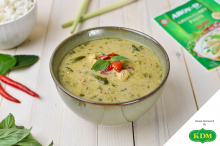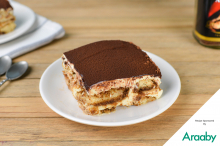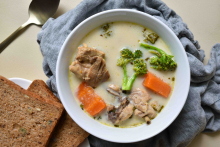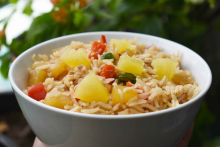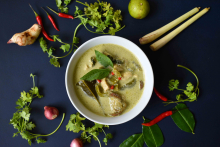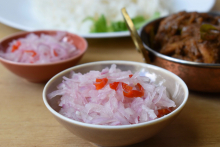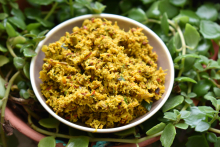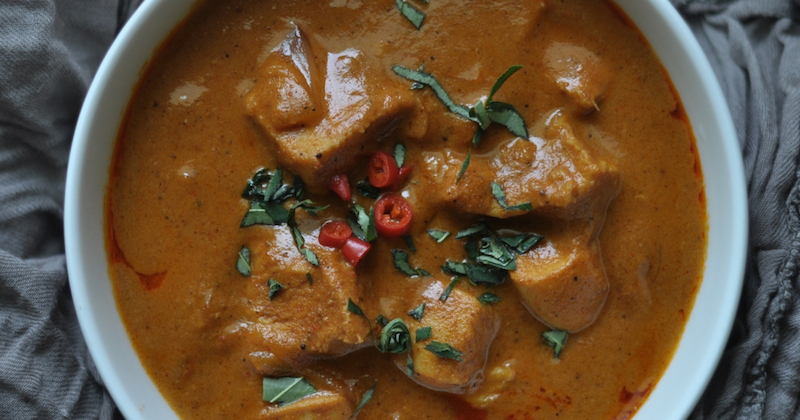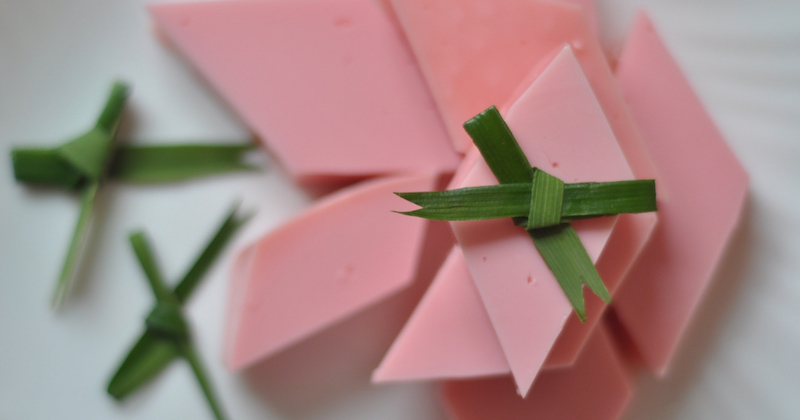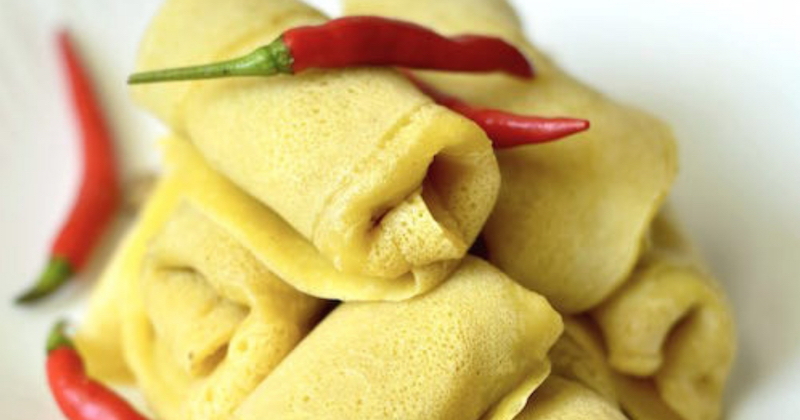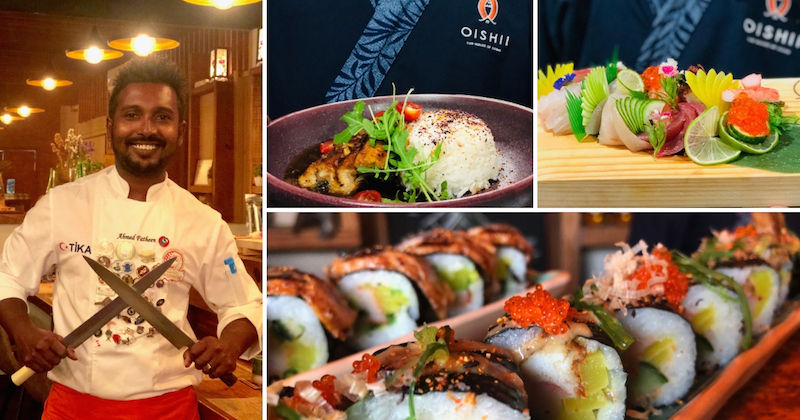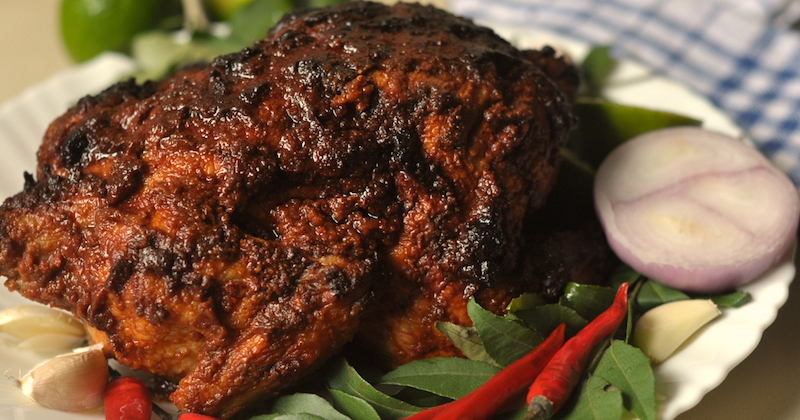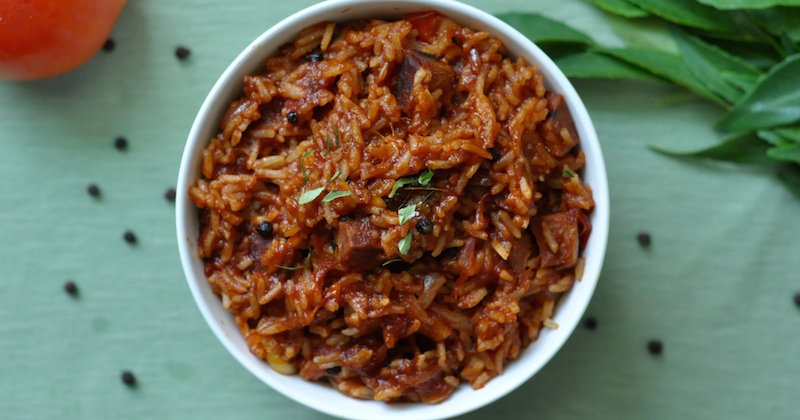In Fragrant Bloom

Jasmine was always in the air. The fragrance wafted from home gardens and the courtyards of mosques. An evocative smell that lingered on the clothes of older relatives. Women wove garlands of jasmine flowers into their hair, a custom that lives on in neighbouring countries for weddings and special occasions. Here at home, jasmine blooms are still used to flavour tea or make potpourri and maafen (jasmine infused water).
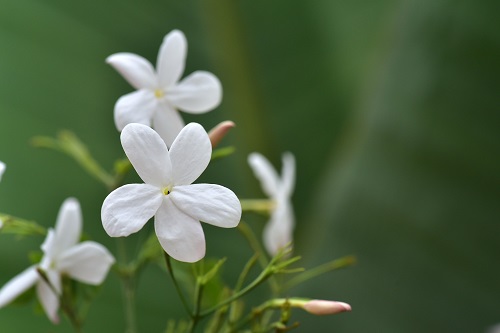
Unlike pandan, maafen is only used as flavouring in desserts. Old sweets like naaruvah falidha are sprinkled with fresh jasmine flowers and dried in the sun. Jasmine comes in many varieties but the type used for cooking in the Maldives is called huvandhumaa (Jasminum Officinale).
Mature flowers are picked in the late afternoon. When the petals open up after sunset, the flowers are placed upside down in a bowl of water and left to soak overnight so that that its essence is infused into the water. The flowers are then discarded. Maafen can be refrigerated for several days.
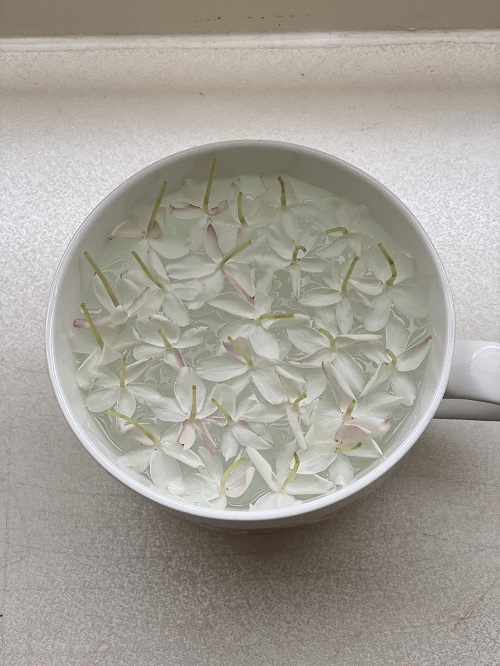
Jasmine flowers aren’t grown as commonly as in the past but locally-made maafen bottles can be found in most corner shops. Store-bought jasmine tea is made with Arabian Jasmine. Called irudheymaa in Dhivehi, this type is mostly grown ornamentally and beloved for its heady scent.
Unlike other white and green teas, jasmine tea is warming, it’s a comforting drink on rainy afternoons. The Dhivehi version is black tea leaves infused with jasmine flavour, always enjoyed with sugar and often milk.
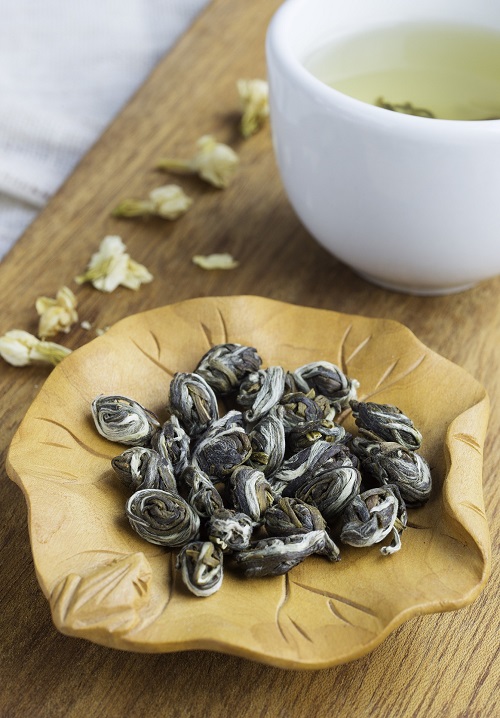
Jasmine-infused teas were first produced in the Fuzhou region in China, where the best tea is still made using the scenting method. Jasmine buds are layered with baked green or white tea, whereupon the tea leaves absorb the natural oils of the buds over several hours. Repeating this process enhances the quality of the tea. The highest grades of jasmine teas are infused up to nine times, after which they go through an additional step of drying.
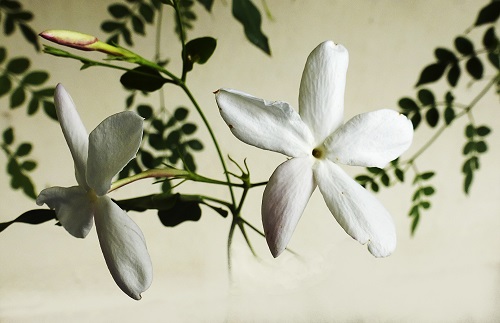
Although most tea-lovers enjoy the floral and earthy notes of jasmine tea, it’s more of an acquired taste for others. How can anyone hate jasmine tea, you ask? It could just be that they haven’t tried a good cup yet.
Some jasmine green teas are flavoured with jasmine essential oil, artificial jasmine flavour, or a mixture of both. So look for good quality tea. Filtered water is best to prepare tea with. Experts recommend seeping the tea bag for 2 to 5 minutes. Any longer and you’ll have bitter tea. The same goes for boiling hot water. The ideal brewing temperature is 160 to180 degrees Celsius. If you get a light floral aftertaste, you know you’ve made it right.
More Recipes
About Lonumedhu
Lonumedhu is about eating great food right here in the Maldives.
Our easy to follow recipes use locally available ingredients.
In our blog you will find food news, interviews with chefs and cooks, useful information about eating out and other foodie reads.
Contacts
© Lonumedhu.com 2017-2021. All rights reserved. No part of this website may be reproduced without the written permission of the publisher.
Advertisers
Lonumedhu.com has partnered with Qualia Pvt Ltd, a publishing & marketing agency, for its desktop and mobile advertising.
Advertising enquiries should be directed to (960) 987 4396 or marketing.sales@lonumedhu.com.

